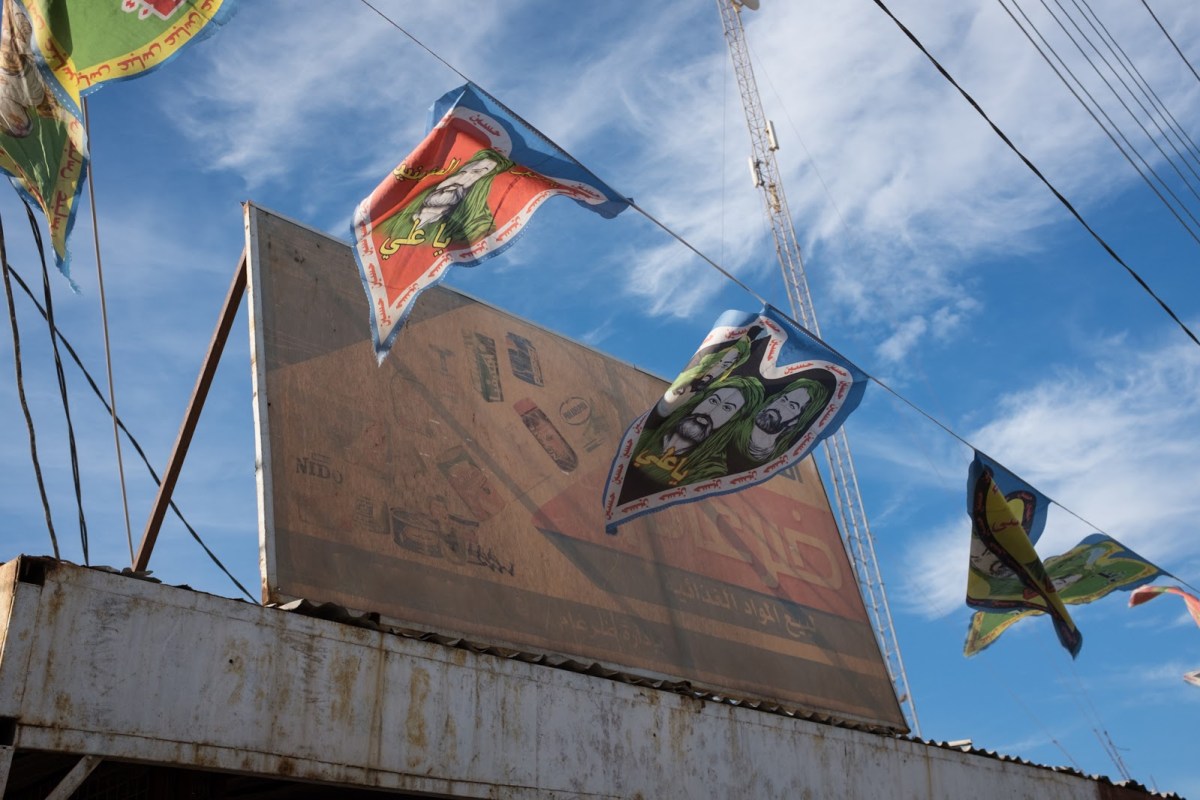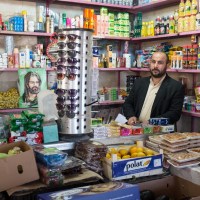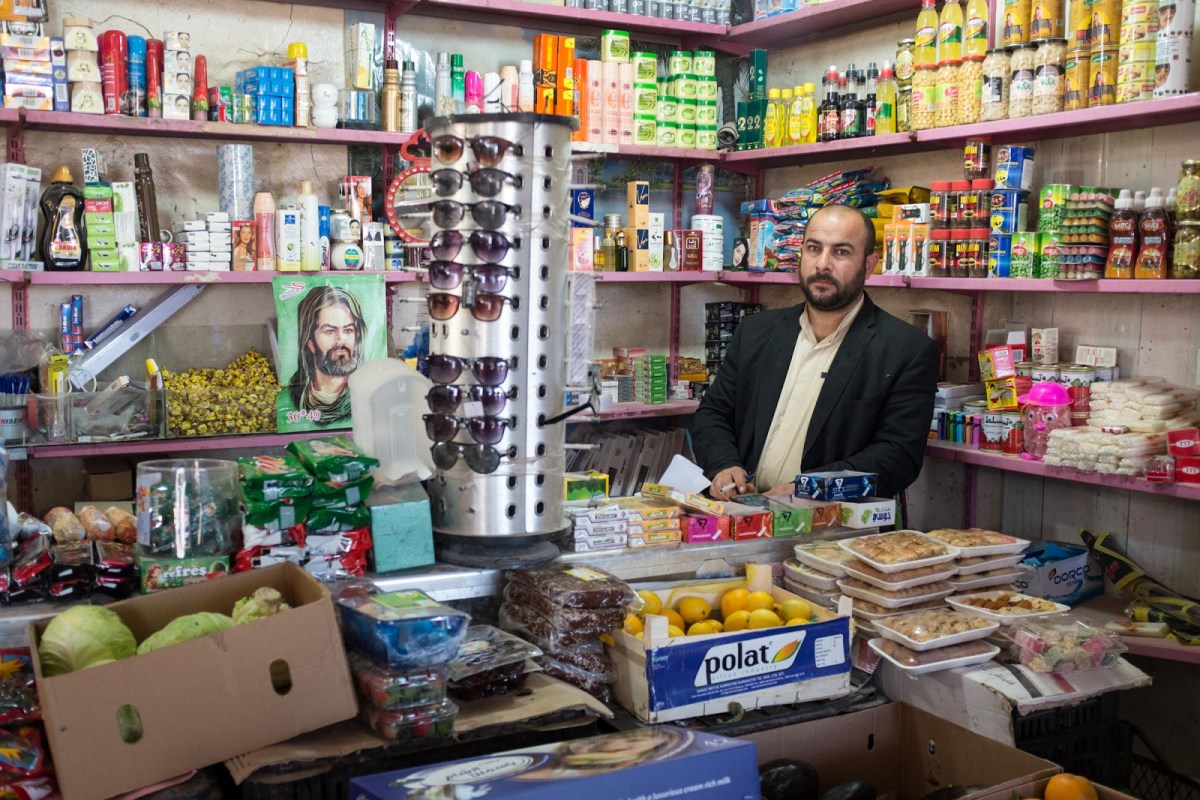If you want to know what a typical Iraqi convenience store looks like, this is it. Shurahbil’s shop is stuffed, floor to ceiling, with everything you might possibly need for your daily life at home.
Snacks are out in front, neatly stacked to the very edge of the sidewalk. Inside, shelves, coolers, cardboard displays, and boxes make the most of every inch.
From the faded sign out front, to the steady stream of customers, you might think Shurahbil is from a well-known local family, and that his store has been here for years.
Except, that’s not the case at all.
Shurahbil is from Mosul, in northern Iraq. His shop is located in southern Iraq.
You helped him open this shop after he fled for his life during the war with ISIS. His story shows the power of relationship when life gets hard.
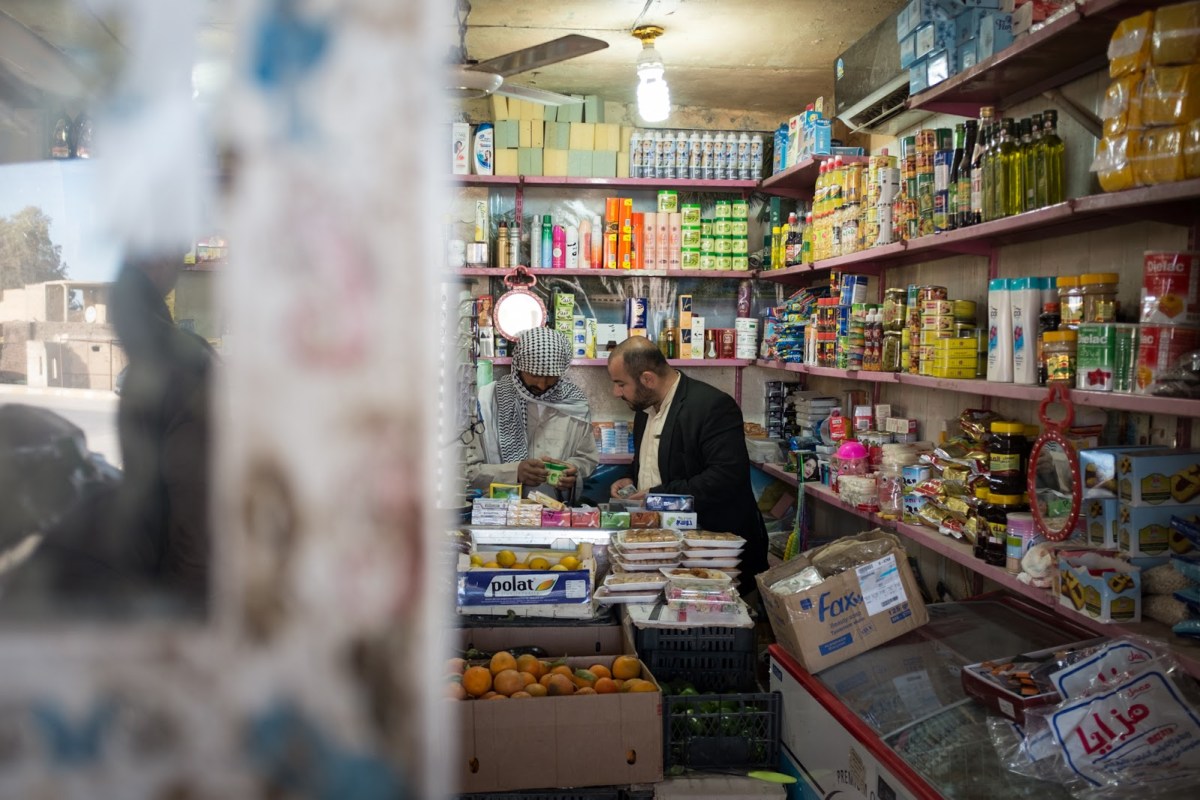
One reason life is so difficult for displaced families in countries like Iraq and Syria is the loss of connection. Relationships—personal and family—are both the social safety net and the glue that holds communities together.
Families are heavily invested in their neighborhood or a relatively small geographic area. They tend to live close to their extended families. Their networks are often rooted in the place where they grew up and married.
For families who don’t have connections outside their hometown or traditional land, displacement is devastating. There is no safety net. If they have to flee home because of war or another disaster, they have to figure out how to rebuild life entirely on their own.
Shurahbil was one of the lucky ones. He grew up in Mosul, where had the chance to meet classmates from around the country while studying management and finance at the local university. He made some good friends along the way.
Some college friendships last until graduation day, and begin to fade as soon as caps are tossed into the air. But some college friends become lifelong companions.
One reason life is so difficult for displaced families in countries like Iraq and Syria is the loss of connection.
When ISIS overtook Mosul in 2014, a number of Shurahbil’s college friends from southern Iraq—a part of the country which was not directly impacted by the war—contacted him to see if he was okay. They invited him to move down to their city, to settle near them until things at home got better.
This was no small offer. The relationships that make up societies in Iraq, the relationships that provide a safety net and community glue—they are built on trust. Trust is everything.
By inviting Shurahbil into their community, his friends were vouching for him. They were putting their own trust “capital” built over a lifetime on the line for him. Their reputations, their good names.
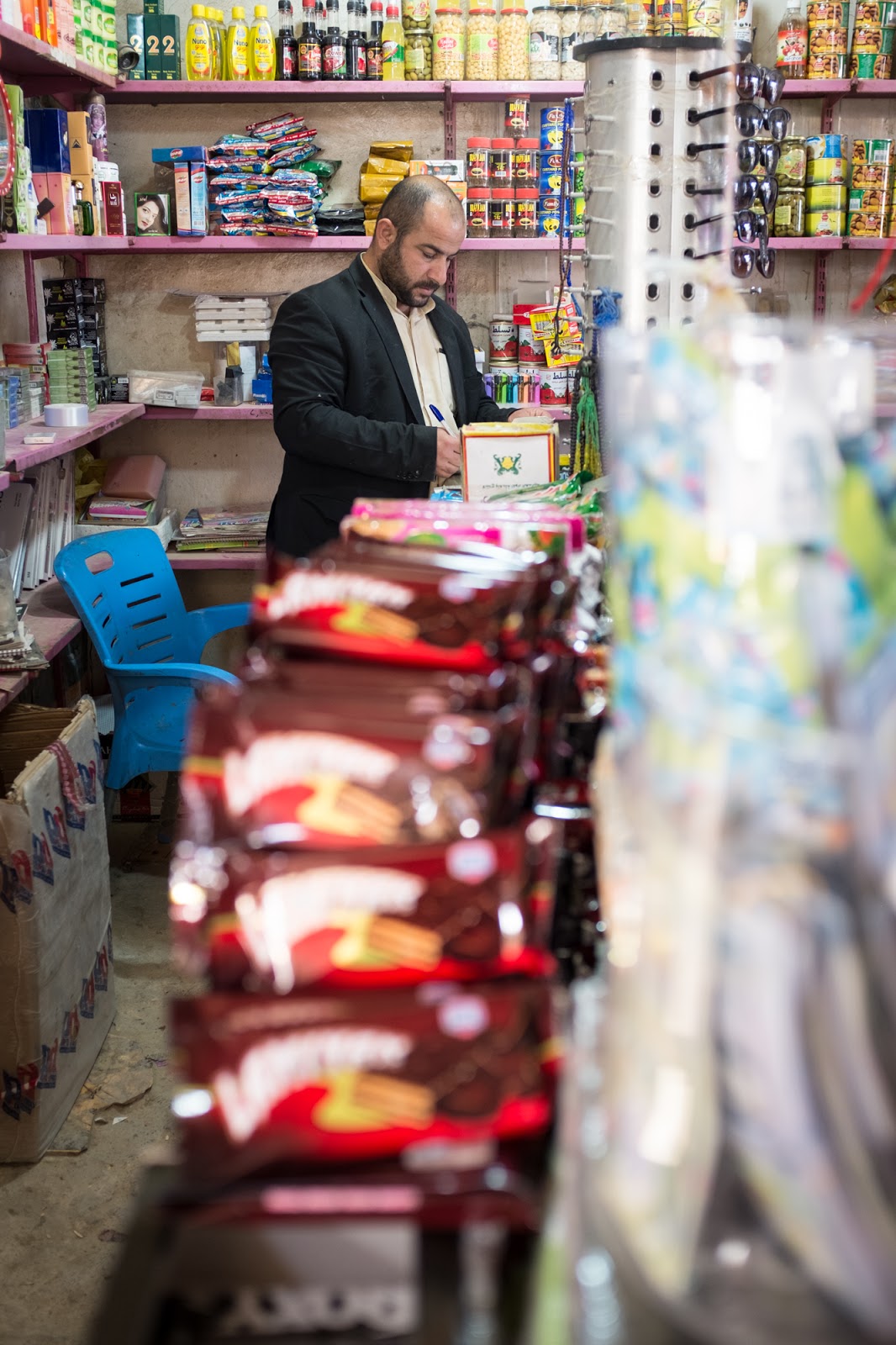
Shurahbil accepted his friends’ offer, moved south, and started to build a life inside a new community.
“Does it feel like home?”
“It feels like I’ve always lived here.” Shurahbil replies.
Everyone knows him. He is invited to neighbor’s family weddings. He pays his respects at funerals. In a short time he has become part of the community fabric.
Sign up to stay informed about Preemptive Love’s work around the world and how you can get involved.
When we partnered with Shurahbil to open a store so he could provide for his family and to save up to rebuild his destroyed home in Mosul, he had already done the hard work of investing in a network of relationships. When he opened for business, there was a group of people who knew and trusted him, who were ready to support him.
Sometimes the only thing left standing between a displaced person and a successful business is a small financial investment. We get the chance to be that bridge.
